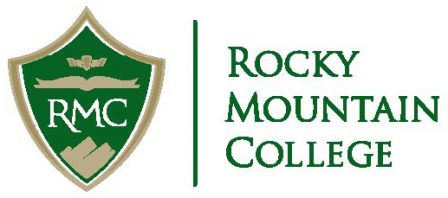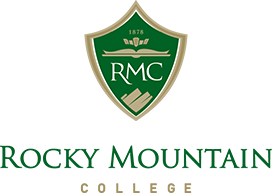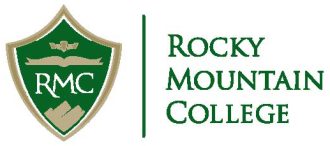Organizational Leadership Minor
February 3, 2022 2024-01-25 1:57This interdisciplinary minor covers a range of leadership concepts, including self-management, which includes values, ethics, and attitudes; problem-solving; decision-making; creative-thinking skills; management of others, which includes creative and collaborative management; delegation; management of change; communication and feedback; team management, which includes the development and growth of group dynamics; and the critical competency of leading by serving, which includes empathy, persuasion, foresight, humility, and the ethical use of power and influence.
Minor in Organizational Leadership
A minimum of 30 semester hours is required, including:
COM 250: Small Group Communication
ECO 205: Principles of Economics
ENG 325: Professional Writing
IDS 483: Organizational Leadership
Choose one of the following:
IDS 115: Qualities of a Leader
POL 220: Political Leadership
Choose one of the following:
AVS 405: Air Transportation Management
BSA 303: Principles of Management
BSA 401: Production and Operations Management
BSA 421: Strategic Management
Choose one of the following:
BSA 412: Business Ethics
PHR 303: Ethics
PHR 340: Christian Ethics
Choose one of the following:
PSY 101: General Psychology
SOC 101: Introduction to Sociology
ACC 210 – Foundations of Accounting
Semester: Fall and Spring
Semester hours: 3
This course is designed to give students a basic understanding of the uses and limitations of accounting information, particularly from financial statements. Students will understand how to take information from the financial statements and make informed business decisions.
Prerequisite: BSA 101
AVS 405 – Air Transportation Management
Semester: Fall
Semester hours: 3
This course provides a comprehensive experience for the aviation student by examining the air transportation industry. Areas of concentration include airline operation, maintenance, marketing, and economic factors affecting the industry. The class uses a simulation program where students create an airline and then compete with other students.
Prerequisite: BSA 303
BSA 101 – Introduction to Business
Semester: Fall and Spring
Semester hours: 3
A beginning business course designed to introduce students to the areas of business study, including historical foundations of America’s free enterprise system, ethics and social responsibility in the business setting, entrepreneurship, the legal structures of business, marketing, and general management.
BSA 303 – Principles of Management
Semester: Fall and Spring
Semester hours: 3
Students examine the management functions and basic concepts and principles of management, including planning, organization, coordination, control, job design, and human resource management. Topics in human resource management include recruitment, selection, administration of personnel policies, and dismissals. This course is often required as a prerequisite for master’s-level business programs.
Prerequisite: ACC 210, ECO 205
BSA 401 – Production and Operations Management
Semester: Fall and Spring
Semester hours: 3
An introduction to various aspects of production, resource, and operations management, which focuses on production methodologies, scheduling, inventory control, quality control, and project management. Performance evaluation and resource planning are also emphasized. This course is often required as a prerequisite for master’s-level business programs.
Prerequisite: BSA 303, ACC 309
BSA 412 – Business Ethics
Semester: Fall; Alternate years
Semester hours: 3
A study of the ethical problems that evolve in the modern business world, including a brief history of ethics and the practical ethical problems associated with running a business. Knowledge of ethical concepts as they apply to business management is explored through case studies and student class presentations. Emphasis is on the role of management as it affects stockholders, employees, customers, and competitors. Issues such as product safety, plant closures, advertising, doing business in other countries, and the overall role of business and society are discussed.
Prerequisite: ACC 309, BSA 303, BSA 304, BSA 311
BSA 421 – Strategic Management
Semester: Spring
Semester hours: 3
The primary goal of this course is to prepare students to think like general managers. Through discussions, supplementary readings, and case studies, we will explore the strategies that cause some businesses to fail and others to succeed. This course provides a capstone experience for the business management major.
Prerequisite: BSA 401
COM 250 – Small Group Communication
Semester: Spring
Semester hours: 3
This course explores how and why people come together in groups, how groups develop norms for acceptable behavior, and how individuals can help groups work efficiently and effectively. Because employers seek competent communicators, this course is designed to provide students an opportunity to develop communication skills that can be applied in both personal and professional contexts.
ECO 205 – Principles of Economics
Semester: Fall and Spring
Semester hours: 3
This course will introduce the principles of firm-level decision making, consumer choices and their rationale, differing forms of industry competition, and how market-clearing prices and quantities are determined in a market environment. Additionally, the students will gain an understanding of how the major participants in the economy interact and what drives economic growth, interest rates, and inflation. The possible impacts of a variety of fiscal and monetary policy choices will be presented to assist the student in understanding how those policies will impact incomes, employment, and trade for a country. At the completion of the course, the student should have a basic understanding of both the microeconomic and macroeconomic environments and their impacts on businesses and the general population.
ENG 325 – Professional Writing
Semester: Fall
Semester hours: 3
This course teaches concepts, practices, and skills for communicating technical, scientific, or business-related information. Topics include understanding how people read, designing documents, incorporating graphics, writing about statistical results, rewriting, editing, and using the Internet. This course may be especially useful for non-English majors, providing them with the tools and techniques to communicate their messages effectively.
Prerequisite: ENG 119
IDS 115 – Qualities of a Leader
Semester: Fall
Semester hours: 3
This course is the study of the art of leadership and how leadership skills can be developed. We will study leaders throughout history, from Sun Tzu (of over 2,000 years ago) to the latest leadership examples. This course will utilize reading, classroom discussions, group participation efforts, and two films in the attempt to dissect the idea of leadership. This course will also look at “personal leadership” characteristics that will enable the student to achieve success at Rocky Mountain College and in society.
IDS 483 – Organizational Leadership
Semester: Spring; Even years
Semester hours: 3
This course operates on a format of open discussion, risk-taking, initiative, honest self-assessment, experiential exercises, and observation of real-life leadership practice. It will challenge students to craft their own perspectives strengthened through critical examination of case studies, workshops, readings, and local public leaders who will share their own leadership perspectives.
PHR 303 – Ethics
Semester: Spring; Alternate years
Semester hours: 3
A study relating ethics, as traditionally conceived in philosophy, to one or more current philosophical works in ethics. This course will provide students with a solid background in ethics, from Plato to Nietzsche. A discussion of a contemporary work in ethics will introduce students to topics that may be covered in depth in later seminars.
PHR 340 – Christian Ethics
Semester: Spring; Alternate years
Semester hours: 3
How can a Christian make moral decisions? We will study the biblical basis for ethics and several modern Christian ethicists to understand how they move from the beliefs of Christianity to recommendations for specific ethical action.
POL 220 – Political Leadership
Semester: Spring; Alternate years
Semester hours: 3
This course will survey various theories of leadership as applied to politics, as well as explore the biographies of the men and women who have shaped both local and global events. Theory is grounded to practical application, with an emphasis on the various styles, methods, and particular contexts within which individual leaders have come to power, and how the exercise thereof has altered or reinforced their original goals and programs.
PSY 101 – General Psychology
Semester: Fall and Spring
Semester hours: 3
A survey of the field of psychology investigating such topics as learning, motivation, human development, personality, social psychology, and physiological psychology. In order to make inquiry into any academic discipline, the student must first learn the language and methodology of that discipline; the field of psychology is no exception. Therefore, this course will include the study of major psychological theories, terminology, and investigative methods, as well as limited opportunity to apply those methods.
SOC 101 – Introduction to Sociology
Semester: Fall
Semester hours: 3
Students examine the nature of the sociological perspective, macro- and micro-sociological theory, and sociological methodology and research. Society’s social organization, social structure, social interaction, socialization, social institutions, deviance and social control, social stratification, ethnic and racial minorities, gender, the family, education, religion, and other topics from a sociological perspective are also explored.
- Clete Knaub, Associate Professor
Contact
Rocky Mountain College
1511 Poly Drive
Billings, MT 59102


